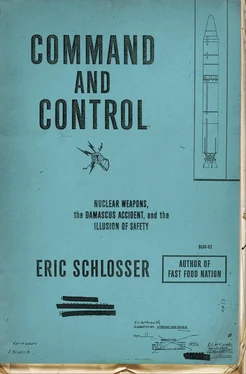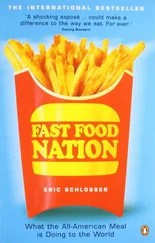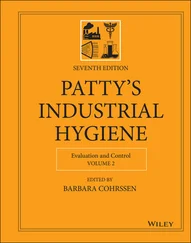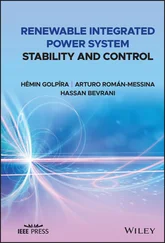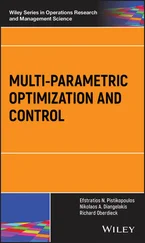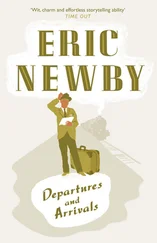In the distance, Kennedy spotted the flashing hazard lights of the pickup truck that Colonel Morris had parked near the gate. The truck was about a hundred yards away — on the other side of the fence. But it gave Kennedy a target, a goal, a destination to reach. Walking and falling, walking and falling, he got close enough to hear chatter on the truck’s radio.
The explosion had knocked over a section of the fence. Kennedy lay on top of it and rolled over it to the other side. He got to the truck and picked up the radio.
• • •
COLONEL MORRIS AND CAPTAIN SHORT were sitting in the mobile command post, parked at the end of the access road, talking to Little Rock on the radio. The mobile command post was a pickup truck with two rows of seats in the cab and a camper shell over the back. They both heard a voice on the radio say, “Help,” and then realized it was Kennedy’s.
English and Rossborough jumped into the backseat of the truck, and it took off. Short was driving, Morris giving the directions. He knew exactly where Kennedy was.
The four men in the mobile command post were the last ones at the site who could retrieve Kennedy — and Colonel Morris looked like hell. Dr. Mueller and a medic, Reginald Gray, were in the ambulance on Highway 65, taking care of Hukle. Everyone else was apparently at the grocery store in Damascus, manning roadblocks or en route to the hospital in Conway. English was eager to go back and find this young airman. Rossborough seemed fearless, but this was only his second visit to a Titan II launch complex. His first, about fifteen minutes earlier, had been to rescue Hukle and Devlin.
Short navigated around a deep crater in the road and then stopped the truck. The road was blocked by the slab of concrete that had almost crushed Devlin. They found Kennedy in the battered pickup near the fence and carried him out. He told them that Livingston was still alive, somewhere on the complex, and then asked Short to do him a favor.
“Captain,” Kennedy said, “you have to call my wife.”
Short promised that he would.
Kennedy looked pale. His face was covered with blood. He was having trouble breathing. None of the men were wearing gas masks, and they could smell oxidizer in the air. They had to get Kennedy out of there before searching for Livingston. They lifted Kennedy into the back of the pickup and drove back toward the highway.
A security police truck came toward them on the access road. Short slowed down but didn’t stop. He stuck his head out the window and yelled, we’ve got Kennedy, Livingston is still on the complex, go down there and try to find him.
Roberts and Green had no idea who was in the truck, yelling at them. They didn’t know what Livingston looked like or where he might be. But they were willing to look for him. Green thought about his six-year-old boy, fast asleep at home, completely unaware of what his father was doing right now.
As they neared the complex, a large cylindrical object appeared in the road.
Well, damn, there’s the warhead, Green thought. He carefully drove around it.
Green stopped the truck, and they walked to the northeast section of the complex, looking for a way to get through the fence. They didn’t have a flashlight. Green climbed onto a light-all unit and tried to point it toward the fence, hoping to find a hole. It wouldn’t budge.
The light-all unit was attached to a Dodge Power Wagon, and Green had an idea: I’ll drive this big pickup right through that fence.
Green climbed into the driver’s seat. Someone had left the motor running. He put the engine into first gear and floored it. The truck smashed into the fence, but the fence held. He backed up and tried again — still, no luck. The fence was too strong, and the truck felt kind of sluggish. He got out of the cab and noticed that all four tires had been blown out by the explosion. It was running on rims.
Green thought that Roberts must have returned to their pickup truck. He walked over to it, but nobody was there. He started the truck and followed the southern section of the fence, looking for a hole big enough to drive through. But he couldn’t find one, and the pickup got stuck on some large pieces of cement. After ditching the truck, Green found a small hole in the fence, entered the complex on foot, and started calling for Livingston and Roberts. Nobody replied. It was hard to see anything, with all the smoke and dust. The lenses of his gas mask fogged up. He kept tripping over debris and falling down. He worried that something terrible had happened, that Roberts had fallen into a hole and gotten badly hurt. Green shouted for Livingston and Roberts and realized that he was lost.
• • •
JIM SANDAKER HAD BEEN DROPPED OFF at the access control point by the two security officers, and he didn’t plan to remain there for long. The men who’d just returned with Kennedy said that Livingston was still alive but the fumes were pretty strong at the complex. Sandaker looked around for a RFHCO suit, found one, and started to get into it.
Under the Category I rules, you needed at least one other person in RFHCO, as backup, whenever you put on the suit. Colonel Morris objected to Sandaker reentering the complex by himself.
Given the circumstances, Sandaker thought those rules were total bullshit. He was going to look for Livingston.
I’ll go with you, Richard English said, claiming to have been trained to wear the suit.
Sandaker had a feeling that English was lying. He couldn’t believe this old guy was going to put on a RFHCO suit. He worried that English would have a heart attack. Doing anything in a RFHCO was hard work; the whole outfit, with the air pack, weighed almost sixty pounds. The two men had never met, but Sandaker was glad not to be heading into the complex alone.
Colonel Jimmie D. Gray had returned to the site, after looking for water at a nearby farmhouse. Gray had started the night at the Little Rock command post, drove to 4–7 with food and supplies before the explosion, and stuck around after it. He helped Sandaker and English get into the RFHCO suits, and Rossborough drove them to the complex in the mobile command post. This time, he wore a gas mask.
Sandaker and English rode on the back of the truck, dangling their legs over the taillights. Rossborough dropped them off. The communications system on the complex no longer worked, and the two men wouldn’t be able to talk to each other with the headsets inside their helmets. They agreed to signal with their flashlights if one of them got into trouble. They found the hole in the fence and walked through it. From a distance they looked like astronauts exploring a hostile planet.
• • •
JIMMY ROBERTS HADN’T SEEN or heard Green slamming the Dodge Power Wagon into the fence. He’d wandered off, searched through Colonel Morris’s battered pickup for a flashlight, failed to find one, and stumbled upon a hole in the fence. Roberts climbed through it and, within minutes, felt completely lost. A couple of thoughts entered his mind: he didn’t want to fall into a hole, and he didn’t want that propane tank, hissing beside the road, to catch on fire and explode. He shouted for Livingston and Green, but got no response. He kept shouting their names — and then he heard someone reply.
“Okay, keep on yelling,” Roberts said, “and I’ll come to your voice.”
About twenty feet from the access portal, Roberts found David Livingston lying on the ground. His face was bloody, and he had a wound in his abdomen. But Livingston was conscious and alert.
Roberts picked him up and started to carry him toward the fence. It wasn’t easy to carry someone while breathing through a gas mask. Roberts started to feel dizzy, and his mask clouded up with sweat.
Читать дальше
